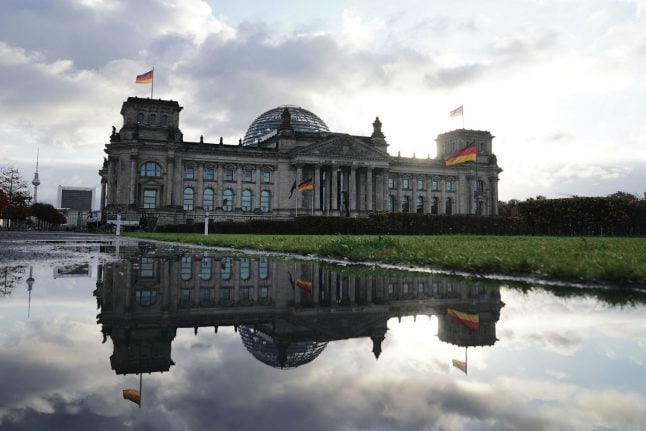Demonstrators against restrictions imposed by Chancellor Angela Merkel's government to halt coronavirus transmission had attempted in the summer to enter the Reichstag parliament building, but were repelled by police forces.
Lawmakers of the far-right AfD party, some of whom had marched in increasingly aggressive virus-skeptic demonstrations, have also been accused of inviting into the parliament building protesters who went on to harass other MPs.
Following chaotic scenes overnight in the Capitol, German parliament speaker Wolfgang Schaeuble said he would examine “what conclusions should be drawn from this for the protection of the Bundestag”, his office said in a statement.
READ ALSO: 'Furious and saddened': Merkel joins German politicians in calling out US Capitol mob
The Bundestag refers to the lower house of parliament with its 709 lawmakers, while the Reichstag is the building where they do their work.
The German embassy in Washington has been requested to provide a report on how the “violent excesses could have happened in the Capitol”.
Security forces of the parliamentary groups, the state of Berlin as well as the federal interior ministry have been tasked with examining whether protection of the Bundestag would need to be beefed up.
Leaders of the AfD released a statement Thursday denying any links to heated virus-skeptic protests in front of the Reichstag building last year.
“Anyone who equates the unrest in Washington with the demonstrations that took place before the Reichstag building in Berlin, and who points to our party's sympathy for these events, is abusing the anarchist events for political purposes in Germany,” they said in a statement.
The mainstream political parties have said the AfD shares blame for the security breaches at the Reichstag and demanded that it call on its supporters to respect Germany's democratic institutions.



 Please whitelist us to continue reading.
Please whitelist us to continue reading.
Member comments